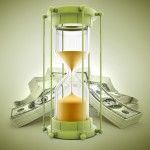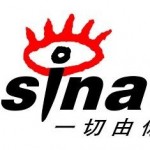In my original article on Dell Inc. (DELL), I compared Michael Dell with Facebook (FB) creator, Mark Zuckerberg, and offered some pejorative remarks that aggregated his responsibility for the FB IPO fiasco (including his choice for the timing of the IPO – right after FB reached 1 billion users and right before a decrease in revenue could be projected by some analysts) with his inability as CEO to maintain an exciting “growth story” that could sustain FB’s stock price at anywhere near the $38 IPO price. I opined that Zuckerberg was still struggling to adequately monetize FB usage on mobile phones/tablets.
As we now know, my timing was perfect – that is, perfectly embarrassing. The July 25th earnings report by FB. The most impressive number for me was the $1 billion in Q2 EBITDA[1] — 11% higher than the most optimistic analyst had expected! That was the first time ever that FB crossed the $1 billion threshold on EBITDA! Other metrics that had me eating my hat:
1) Mobile ad revenue of $657 million – about 50% above expectations.
2) User “monetization” zoomed 26% higher than one year ago to $1.60/user – a level that puts FB at the top of the social media space on that central metric.
FB stockholders were well rewarded, as can be seen below, with a one-day price bump of 29.6%!
Perhaps more importantly, the stock price moved above the IPO price to a 52-week high!
With a tip of my now gnawed on hat to Mr. Zuckerberg, I put on my big boy pants and admit that I was too harsh regarding FB’s financials.[2]
INVESTOR TAKEAWAY: It is human nature to get caught up in the excitement of FB’s earnings blowout and the newfound (and impressive) upward momentum in its chart! However, a more detached and reasoned trader will balance “excitement” with the caution that experience suggests. At least two things need to be kept in mind:
1) There may well be some resistance between $38 and $43 or so because so many investors “bought” the IPO hoopla and jumped in at or just after the IPO (both naïve and experienced traders alike). Now that FB has finally moved back into that price territory and such shareholders can “unload” the stock at breakeven or with a slight gain, they may decide to do so! That could put something of a ceiling on FB for a time.
2) An investor may want to just dabble in lower risk FB options for now (such as OTM bull put spreads) until we see the next quarterly earnings — in order to become convinced that FB has definitively broken its past tendency to “disappoint” at earnings time.
IMPROBABLY, MR. DELL REDEEMS ME
Referring to the same DELL article that I listed above, as off-base as my timing was with regard to Mr. Zuckerberg, subsequent events have demonstrated that I was not harsh enough with regard to Michael Dell’s short-comings related to integrity and the faithful discharge of his fiduciary responsibility to shareholders as the company’s CEO. Since Mr. Dell first publically presented the bid from his troika (Silver Lake Partners, Microsoft (MSFT), and Mr. Dell) to take DELL private for $13.65/share, and gave the board just 45 days to either accept or reject that offer, the story has evolved into what can only be described as a takeoff on the old, classic “Dallas” TV show – filled with high stakes scheming, cut-throat dealing, and blatant manipulation (with a touch of “Alice in Wonderland” thrown in because things were not always as they seemed). To spare you all the details, here is a summary of the highlights. [Note that I often refer to “the board” for the sake of simplicity. The fact is that soon after the buyout deal was offered, a “special committee” was formed to ensure “fairness” in the process; therefore, most of the decisions being made since then have come from that committee. However, they were empowered to speak on behalf of the board, which justifies my wording below.]
1) It is rare for a publically owned company to postpone a shareholder meeting at the last minute. DELL has now down that three times, strictly as an accommodation to aid the efforts of Dell’s troika in ensuring they have the votes needed for approval;
2) Two main impediments stood in the way of the troika forcing its will upon the board and shareholders: 1) Strong opposition from Carl Icahn and Southeastern Asset Management (two major shareholders), and 2) A large proportion of “absentee” voters among DELL shareholders, which by Dell’s own rules are counted as “No” votes.[3]
a. Almost 60 years ago, Carl Icahn garnered enough cash winnings from poker to cover about half of his college tuition at Princeton University! He has enriched and enhanced his “poker skills” in the years that followed. So Dell’s troika was not going to roll over him.
b. To counter the large number of “absentees” that stood in his way, Dell actually negotiated with the board to change the rules so the deal could go through!
3) With regard to 2b), the board indicated it could change the rule (or the record date) if the troika increased its buyout price by $0.10! The troika declined, indicating that $13.65/share was its “best and final offer”!
4) Very significantly (but largely ignored in the quagmire of the buyout saga), corporate regulations dictate that an annual meeting of shareholders be held no later than thirteen months following the prior year’s meeting. Since DELL’s 2012 meeting was July 13, 2012, this year’s meeting needed to be convened no later than August 14 of this year!
a. Three cancellations later we will soon be ripping past that deadline.
b. It is amazing that a hue and outcry has not been publically made about this (in just a minute, I offer a reason why it hasn’t!).
5) The bottom line now, as of late last week, is as follows:
a. Dell and his group have raised its bid to $13.75/share.
b. The board has announced the new, revised date for the 2013 annual meeting: October 17th (two months late), and the “record date” for a new vote on the proposal will be September 10th.
c. Assurance was given that the third quarter dividend (8 cents) will be paid, along with a special dividend of 13 cents/share.[4]
6) The reason this story is extremely significant is because the size of this buyout is extremely unusual in the post “financial crisis” era. In fact, it will be the largest private equity buyout since at least 2008! It therefore carries special significance because it is so public and has implications across a number of areas within the corporate and financial world.
- As such, it should be disturbing to all fair-minded shareholders and observers who want to believe in the effectiveness of bylaws, regulations, standards of corporate governance, etc.[5] to maintain some level of shareholder protection!
i. Michael Dell violated his fiduciary responsibility as CEO when he spent many months in 2012 conspiring with his partners on a buyout – developing a plan that offered as little as possible to shareholders for their company.
- If Mr. Dell wanted to take it private, he should first have resigned as CEO and then engaged in his bid.
- As it turned out, he has spent months (since February) negotiating against the best interests of shareholders.
- Complicating matters further, Dell and his partners have repeatedly asked for (expected) the rules to be changed for him to enable the buyout to go through.
ii. There is no way to deny that the board enabled Mr. Dell by bending the rules beyond recognition.[6]
- One clear example of the deleterious impact of all of the above on DELL shareholders can be seen in the price chart to the left (from YahooFinance.com):
While the hapless folks as Hewlett Packard (HPQ) stopped shooting themselves in the foot and demonstrated improvements in HPQ operations (leading to an almost 40% rise in price since one year ago), DELL has been “stuck” since February and is barely up 10% since last August!
c. Another (oversimplified, but valid) comparison can be seen in this graph of relative “Free Cash Flow” (FCF) over the past year for DELL and HPQ. Note that since the quarterly report for the January 2012 quarter, HPQ has witnessed a 58% increase in FCF while DELL’s FCF has decreased by 41%!! (Graph from YCharts.com).
7) Finally, why is there so little hue and outcry about all this? Because of the “Alice in Wonderland” quality of the story – nothing is really as it seems!
- “Best and final offer” was really not the best and final offer.
- At one point, Mr. Dell said to the board and shareholders, “I will honor your decision”; but then he brainstormed ways to get around, overcome, manipulate, or postpone the decision.
- Mr. Dell also said, “I am at peace either way”. Really??! Evidently not.
- No one can let the board “off the hook”. At various points it clarified “the rules”, and then let them be openly ignored or “bought off” by a higher bid.
- Consequently, by May or June, almost everyone stopped expecting normal standards to apply to any part of this story!
I imagine you know by now how I feel about Michael Dell. But notice how judicious I have been in my word choices! I have not once violated my editor’s strict prohibition against the “fun” adjectives appropriate to describe someone who is challenged in so many respects, as clearly demonstrated within the details of the story of DELL’s buyout saga!
It surely appears now that it is a “sure bet” that the deal will be approved. However, the specter of “Alice in Wonderland” still looms over all – so I caution you with the same phrase used so often in TV commercials: “But wait….!”
INVESTOR TAKEAWAY: Don’t let yourself become so inured to malfeasance or abuse by corporate leadership (or political leadership) that you stop being repulsed by it! If we all just stand by and wait for regulators to correct, we risk being robbed blind. Worse, if we begin to accept it as “the cost of being an investor”, then we become (in my opinion) complicit in such acts of improper or illegal actions within corporations or governments!
With specific regard to DELL stock, I hope you see by now that any new investment in common shares would stagnate for the next two and one half months. Something very unusual would need to happen to change that prognosis.
DISCLOSURE: The author does not own FB, DELL, or HPQ. Nothing contained herein should be considered as a recommendation to buy or sell anything. Always consult with your financial advisor before buying or selling any security.
Submitted by Thomas Petty MBA CFP
[1] Earnings before interest, taxes, depreciation, and amortization.
[2] I am sure he is breathing a sigh of relief as he reads this!
[3] I note for the record that various stories have differed on this detail. Some refer to “abstentions” and others refer to “absentee” voters. This is very frustrating to me; but the essential point is clear and remains—a significant number of shareholders did not vote, thereby hampering the buyout. Eventually, the request to “change the rules” was acceded to once the offer was raised.
[4] In a statement that offers reality-stretching “spin” (rivaling the ability of White House Press Secretary, Jay Carney, in that area), the chair of the “Special Committee”, Alex Mandl, said: “The Committee is pleased to have negotiated this transaction, which provides as much as $470 million of increased value, including the next quarterly dividend that will now be paid regardless of when the transaction closes.”
[5] I’d throw in “business ethics” as well, except too many would deride me for being a “Pollyanna”, since such folks consider that term an oxymoron these days.
[6] I can’t help asking myself if the board and Mr. Dell aren’t aware of the importance of the “rule of law and legitimate regulations” in the fair and efficient operation of our country.
For example, the U.S. Congress is required to create and pass a budget for each fiscal year, per the U.S. Budget and Accounting Act of 1921. Otherwise, there is the risk that national finances will become uncoordinated, haphazard, and sometimes even capricious. Thank heavens Congress complies with the law! What’s that?? You say it doesn’t? It hasn’t for over 1,550 days now?! Oooops! But I still insist that the principle of law is inviolate, despite Congress!
Related Posts
Also on Market Tamer…
Follow Us on Facebook

 Discover Financial Services: A Stock to Watch Post-Capital One Merger?
Discover Financial Services: A Stock to Watch Post-Capital One Merger?



